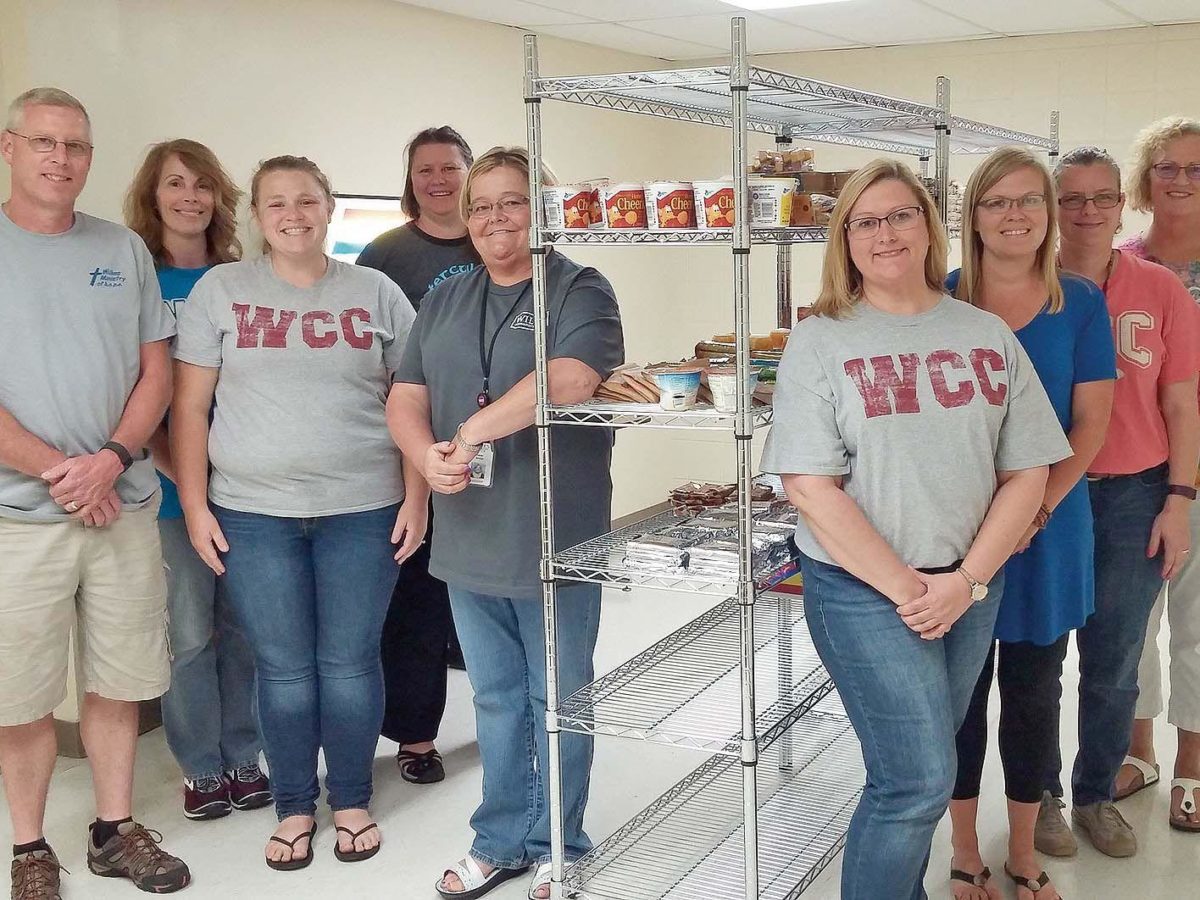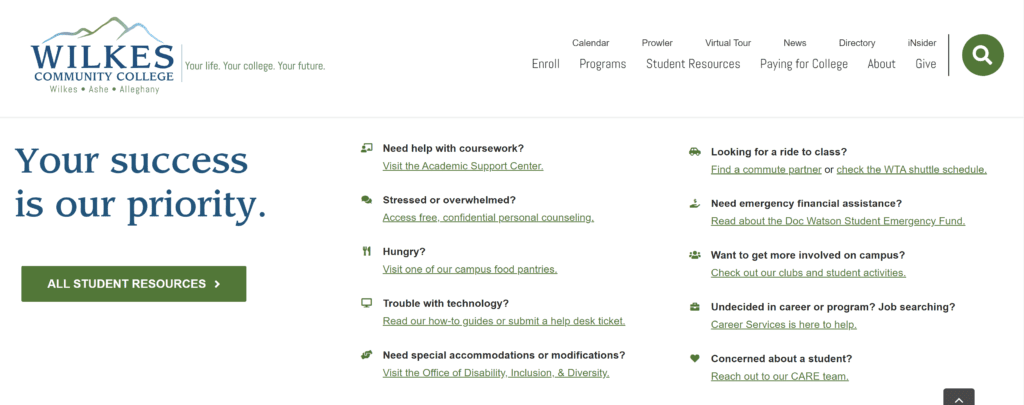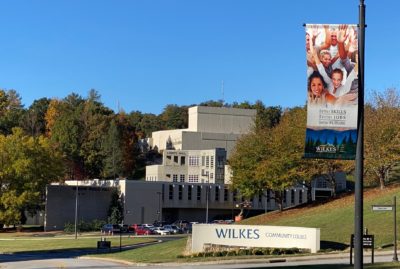

|
|
This series takes a look at the role community colleges can play in economic development.
- This community college created a playbook other colleges can use to establish a student success center with a goal of doubling the graduation rate.
- This community college co-founded a nonprofit to bring higher-paying jobs to the region and is building spaces for workers to come together, revitalizing downtowns.
- This community college is working with a taskforce to connect workers to high-quality, affordable child care, allowing them to stay in the region to work.
With this strategic focus on economic mobility for students, economic prosperity for workers and employers, and economic impact for the region, the future of work is happening right now in Wilkes County.
In addition to the workers the mountains might attract, Wilkes Community College wanted to create opportunities for economic mobility for the people who have always lived in Wilkes, Ashe, and Alleghany counties to the north.
This is what students see on the homepage of Wilkes Community College:


Getting students to and through this community college matters because a recent economic impact study found that for every dollar spent, students gain $8.70 in lifetime earnings, and the average associate degree will increase earnings by $7,100 a year.
In fall 2020, Wilkes Community College created a taskforce to research, analyze, and design wraparound services for students. They started by assessing why students drop or stop out of college. They looked at 17 peer institutions, learning how they identified basic needs, which were most common, how they staffed and funded student support, what strategic partnerships were needed, and how to best communicate with students. Here is their playbook:
The following insights drove the design of the wraparound students services Wilkes Community College now provides students:
Improved retention and graduation are the ultimate goals of wrap-around services, and should be the guiding rationale for communicating, resourcing, and measuring impact of the initiative
Removing the stigma of receiving temporary basic needs support, establishing a culture of caring, and educating and involving every college employee are all foundational to addressing basic needs insecurities more effectively
Professional staffing, including a social worker, is recommendable; additional staffing resource limitations can be overcome through social work interns from area universities and community college student interns
Funding typically includes a mix of sources — grants, donations, college foundation support, state budget allocations — and will likely evolve over time; state budget allocations typically come after impact metrics are demonstrated for a few years
Visibility and communication are key to student awareness and engagement with wrap-around services — typically a central, high-traffic location serves as the physical hub of wrap-around services operations
Partnerships with nonprofits, businesses, churches, and government agencies help address basic needs beyond the scope of college resources
Tracking program metrics enables measurement and analysis of impact, justification of resources, and ultimate sustainability of wrap-around services
If you build it, they will come — the need for these services has existed for some time; when programs effectively communicate services and make them accessible to students, they experience quick growth in the percentage of students utilizing the services
Students at Wilkes Community College now have access to academic support, counseling, food, tech support, transportation, and emergency financial assistance, among other services.
With these student support services in place, the goal is to double the college’s graduation rate and increase the students’ economic mobility.
Next in the series: The next step was to bring jobs to the region to increase economic prosperity and build spaces for workers to come together that would also revitalize downtowns.



